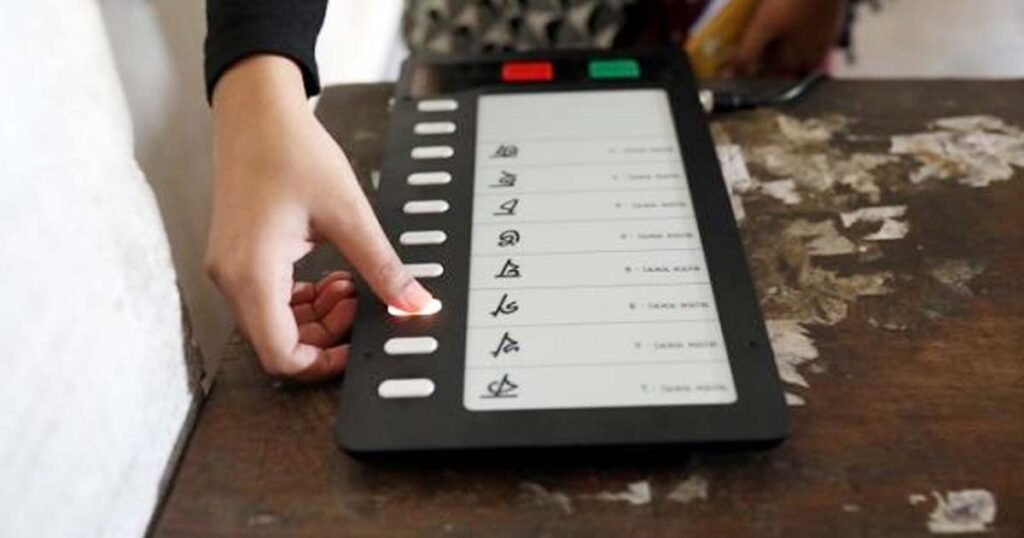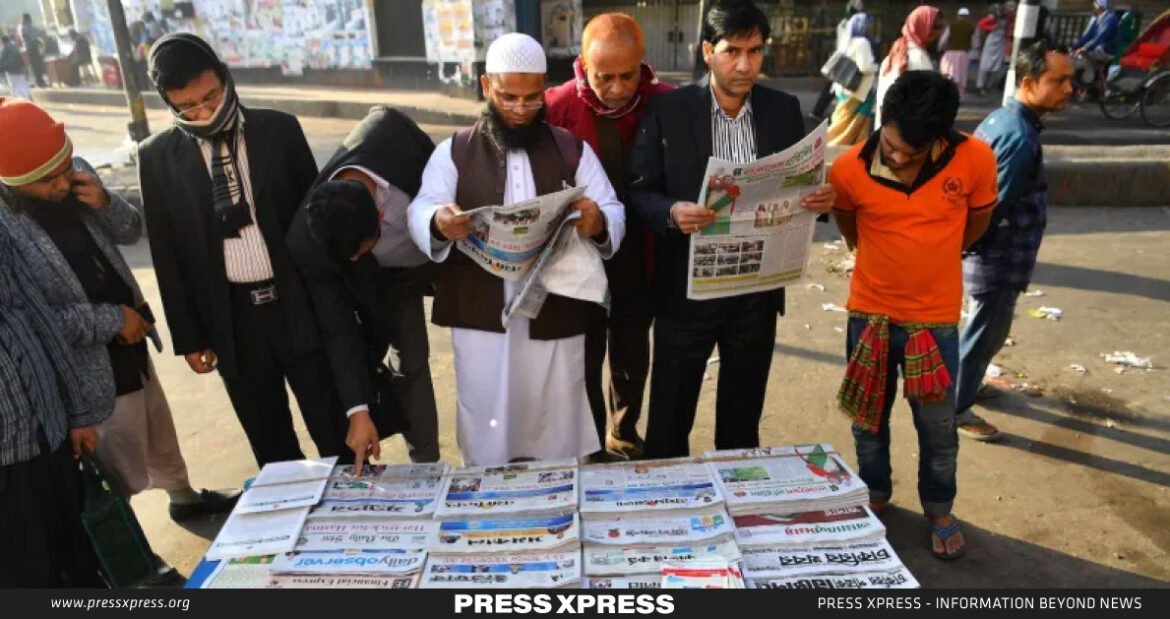Key Highlights:
- The Constitution supports the government’s continuity during elections
- EC holds the authority to transfer government employees if necessary
- No police protocols for election campaign activities
Election-time government in Bangladesh plays a crucial role in overseeing and facilitating the electoral process for a seamless transition of state power. The upcoming 12th parliamentary elections, scheduled for January 7, will involve 300 seats. The election schedule was officially announced on November 15 by Chief Election Commissioner Habibul Awal in a televised broadcast, adhering to constitutional guidelines.
The genesis of the election-time government can be traced back to 1996 when, in response to opposition-led movements, the BNP government introduced the thirteenth amendment, institutionalizing the caretaker government system. However, this system was later abolished in 2011 through the Fifteenth Amendment. Subsequently, during the 2014 and 2018 elections, the incumbent government assumed the responsibilities associated with the election process.
According to the fifteenth amendment enacted in 2011, the current government is mandated to continue its tenure until the election. Nevertheless, a shift in responsibilities occurs from the announcement of the election schedule until the actual election, leading to a temporary reduction in the government’s powers. During this pre-election period, the election-time government is limited to routine tasks, with restrictions on making any policy decisions. This ensures a fair and impartial electoral process, promoting transparency and democratic principles in Bangladesh.
What does the Constitution say?
Constitutional experts highlight that the Constitution does not explicitly outline the framework for an election-time government. Instead, it affords the prime minister a spectrum of options: maintaining the existing cabinet lineup, removing technocrat ministers or any combination of ministers alongside technocrats, introducing new cabinet members, or devising a solution tailored to the prevailing political circumstances.
The absence of explicit provisions for an election-time or interim government means that any adjustments made during the election period retain the regular functioning of the government. The constitution mandates the government to extend complete support to the Election Commission throughout the electoral process, a responsibility unaffected by alterations in the government structure.
In accordance with constitutional stipulations, the upcoming parliamentary elections are slated to occur with the incumbent government in power. Even in the event of parliamentary dissolution prior to the elections, it does not interrupt the continuity of the government. Article 57(3) of the Constitution unequivocally asserts, “Nothing in this Article shall disqualify the prime minister from continuing in office until the successor of the prime minister assumes office.” This underscores the constitutional continuity of the executive branch during the transition period.

Constraints of government during election period
Following the announcement of the election date, the government is restricted to routine tasks and normal activities, refraining from making any policy decisions in the pre-election period. Development projects are put on hold during this time, and three technocrat ministers have already resigned to make the election-time cabinet smaller. They are Mustafa Jabbar, telecommunications minister; Yeafesh Osman, technology minister; and Shamsul Alam, state minister for planning.
Moreover, government ministers who intend to run in the upcoming 12th parliamentary elections will experience reduced facilities, specifically lacking protocols for election campaign activities. Law, Justice, and Parliamentary Affairs Minister Anisul Haque emphasized that Prime Minister Sheikh Hasina’s government, having announced the election schedule, is committed to maintaining routine operations, avoiding policy decisions to ensure a fair electoral landscape.
Prime Minister Sheikh Hasina emphasized adherence to public representation orders during the election period, stating that ministers, once election time is announced, cannot utilize any government facilities, flags, or privileges. Instead, they are expected to campaign for votes as candidates.
Addressing the election process, Article 5(2) of the Representation of the People Order, 1972 empowers the Election Commission to direct individuals or authorities to fulfill duties essential for election conduct. Article 44(e) places restrictions on the transfer of certain officials, such as Divisional Commissioners, Metropolitan Police Commissioners, Deputy Commissioners, and Superintendents of Police, within 15 days of the election schedule announcement without the Election Commission’s consultation and approval. Additionally, the Election Commission holds the authority to transfer government employees if deemed necessary.
What happened in 2014, 2018
A retrospective examination of the government’s dynamics during the 2013 and 2018 election periods reveals noteworthy transformations, particularly during the 2013 elections.
In a strategic move preceding the announcement of the election schedule on November 11, 2013, all cabinet members submitted their resignations at the behest of the Prime Minister. Subsequently, on November 18, six new cabinet ministers and two state ministers were sworn in. The composition of the new ministers included two from the Awami League, one from the Workers Party, and three from the Jatiya Party, while both state ministers hailed from the Jatiya Party.
Out of the existing 51-member cabinet, 16 ministers and 14 state ministers, including three technocrat quota ministers, tendered their resignations, while the remaining retained their positions. This resulted in a total of 29 cabinet members during the elections, inclusive of the newly appointed ministers. Simultaneously, adjustments were made in the role of advisers to the Prime Minister, with five out of seven advisers resigning. Notably, Barrister Shafique Ahmed, a technocrat minister, Dilip Barua from the Communist Party, Anwar Hossain Manju (Chairman of the Jatiya Party), and Ziauddin Ahmed (Jatiya Party) were appointed as advisers.
In contrast, the 2018 elections witnessed minor changes, primarily centered around the resignations of technocrat quota ministers Matiur Rahman, Nurul Islam BSc, Yafes Osman, and Mustafa Jabbar, following the Prime Minister’s directives.
Following the model of other democratic countries
Prime Minister Sheikh Hasina, during a press conference at Ganabhaban on October 31, shed light on the approach the government will adopt during elections, drawing parallels with parliamentary democracies like England, Australia, India, and Canada. The emphasis lies on maintaining the functionality of the government during the electoral period, ensuring it remains engaged in routine work to prevent any inertia in governance. This approach aligns with the democratic practices of other nations, where electoral governments continue to function, emphasizing the importance of sustained governance even amidst the election fervor. Comparatively, countries like England, Australia, India, and Canada exhibit similar practices, where the routine functioning of the government persists during elections. This approach is designed to prevent a power vacuum and to maintain a semblance of normalcy in public administration. The rationale behind such a strategy is rooted in the understanding that governance is an ongoing responsibility that cannot afford interruptions, even during the critical electoral phase. By aligning with this international democratic norm, Bangladesh aims to reinforce its commitment to stable governance and the seamless transition of state power, ensuring that the democratic principles upon which the nation thrives are upheld.


